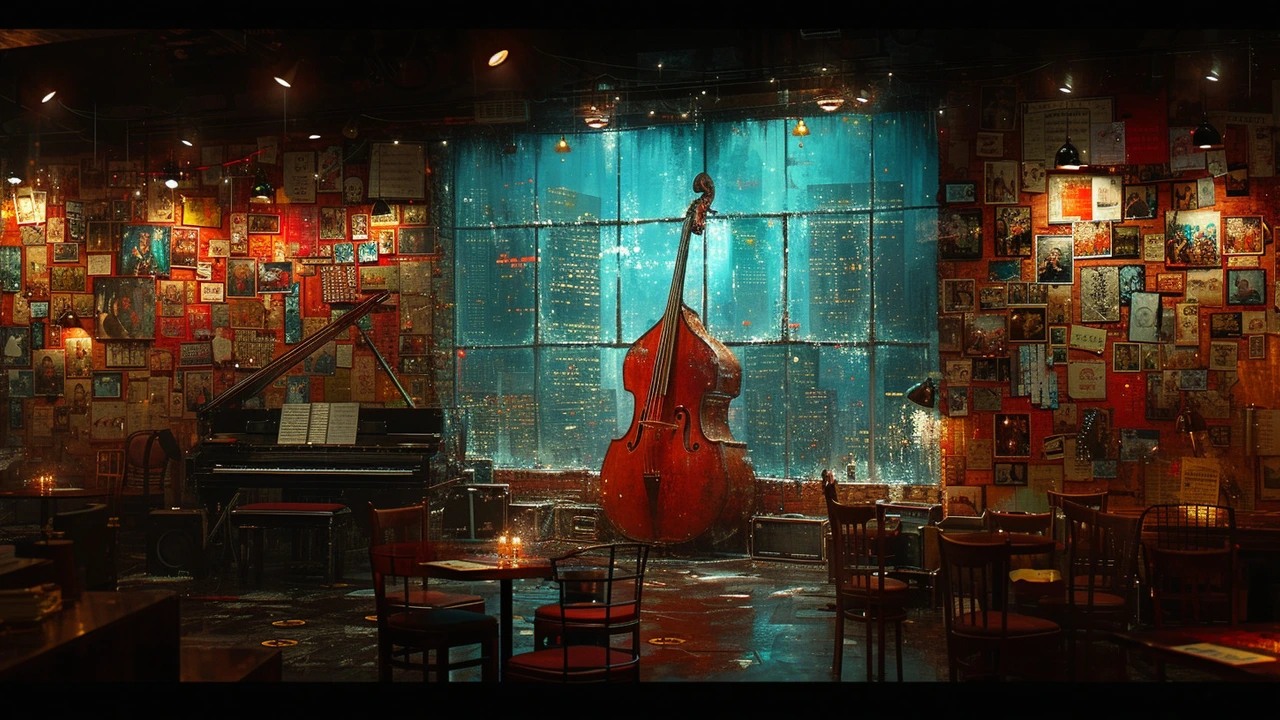Roots of Soul: The Genesis of a Musical Movement
Soul music has always been more than just a genre; it's a heartfelt cry, rhythmically capturing the essence of human emotions. It erupted from the gospel churches and the smoky clubs of the American South, birthing legends like Aretha Franklin and James Brown. In its infancy, soul was the voice of the African American experience—a blend of gospel with the blues, jazz, and, importantly, rhythm and blues (R&B). With time, its influence made waves far beyond its birthplace, setting the stage for musical innovation.
Serrated by the call-and-response tradition of gospel music and fueled by the struggles for civil rights, early soul music wasn’t just a form of entertainment; it was a cry for freedom and respect, encapsulated in the silky smooth vocals and earth-shattering performances of its icons. Through booming speakers and crackling radios, soul broadcast messages of love, pain, joy, and resilience, constructing the emotional blueprint that R&B artists would draw from for decades to come.
Icons of Soul: Pioneers Who Paved the Way
It’s impossible to talk about soul without tipping our hats to the pioneers who turned personal tribulation into sonic triumph. Sam Cooke's velvety voice and Otis Redding's raw emotion set the standards for what soul could be, while artists like Ray Charles broke genre boundaries by infusing soul with pop elements. These icons didn't just sing; they preached through melodies, pronouncing every note with a conviction that R&B artists today strive to emulate.
These musicians were architects of feeling, welding the rhythm into rhythm and blues, and etching their stories into vinyl. Their performances were electric, often described as religious experiences, due to the undeniable soul that bled through their artistry. The legacy they left behind educated and inspired a generation of R&B artists, who recognized these icons not only as musicians but as teachers of the soul language.
Elements of Soul in Modern R&B
Today's R&B carries the DNA of classic soul, woven intricately into its fabric. Elements like emotive vocalizations, evocative lyrics, and the all-important groove stayed as cornerstones, even as R&B ventured into new territories with modern production. The influence is vivid in the works of contemporary artists like Alicia Keys, who has the same intimate piano as many soul greats, and John Legend, whose storytelling echoes the forebears of soul.
Modern R&B frequently flirts with hip-hop, pop, and even electronic music, but it never forgets its soulful origins. The raw vulnerability expressed in soul music remains a metric of authenticity in R&B. Whether it's the crack in the voice at the climax of a ballad or the rapturous energy of an upbeat track, the echoes of soul are audible and powerful.
Soul's Cultural Tapestry: The Unseen Threads in Society
Soul music did more than shape a genre—it helped shape culture. The soundtrack to pivotal historical moments, soul songs became anthems for change. They offered solace in sorrow and joy in celebration. The cultural impact of soul reinforced the idea that music could be an agent for change and not just entertainment. This cultural underpinning is carried forward by R&B, with artists championing causes and reflecting societal shifts.
The narratives woven into the lyrics of Marvin Gaye’s 'What's Going On' and the anthemic energy of 'Respect' by Aretha Franklin are testament to soul music’s societal resonance. That resonance still vibrates in R&B, an ever-evolving commentary on the human experience, speaking to matters of love, social justice, and identity.
Essential Soul Tracks That Informed R&B
A discussion about soul’s influence isn't complete without recognizing the tracks that became the bedrock for future R&B hits. Think of 'Sittin' On The Dock of the Bay' or 'Chain of Fools' as the syllabus for R&B 101. These songs, and countless others, lay down the harmonic and thematic elements that would be taught and retaught through the evolving syllabus of R&B music.
Listening to these soul classics is like an education in musical expression. Today, the sampling and reinterpretation of soul tracks serve as a literal and figurative nod to the genre's weighty contributions, crafting a historical lineage that ties the old to the new in an everlasting melodious bond.
Keeping the Soul Alive: The Future of R&B
And where does soul’s influence leave us as we look to the future of R&B? It's secured a timeless sound and made artistic vulnerability a virtue. As R&B continues to transform, incorporating technological advancements and global influences, the essence of soul ensures this genre remains grounded in the expression of our innermost feelings and stories.
As long as there are stories to tell and emotions to express, the influence of soul music on R&B isn’t just preserved; it's living and evolving. Artists who draw from soul's rich well continue to find innovative ways to keep the tradition alive, ensuring that the heart of music beats on, just as it did in those early stages where soul and R&B first found their harmonious convergence.

